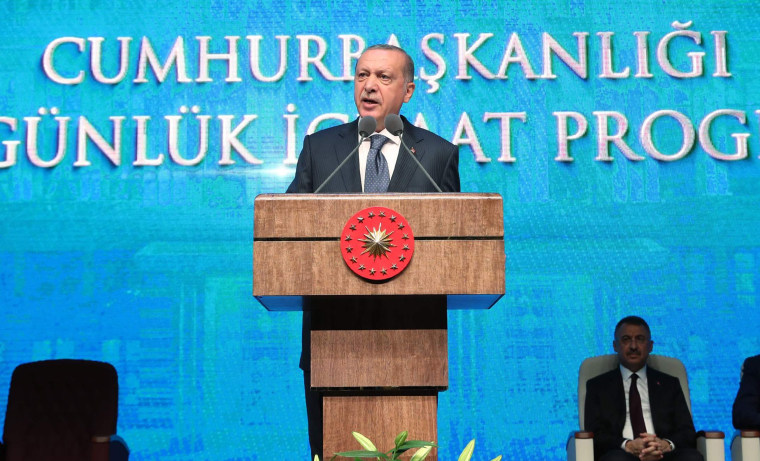ISTANBUL — Turkey will freeze the assets of two U.S. officials in retaliation for U.S. sanctions against Turkey's justice and interior ministers due to the detention of an American pastor. President Recep Tayyip Erdogan announced the decision Saturday in a move that appeared more symbolic than practical.
Speaking in Ankara, Erdogan said Turkey had been "patient" since the U.S. Treasury sanctions were imposed Wednesday, but ordered authorities to "freeze the assets of America's justice and interior ministers in Turkey, if there are any."
It is unclear who that would affect, due to differing Cabinet roles in the United States than in Turkey, or if the U.S. officials even have any holdings in Turkey.
Erdogan’s retaliatory remarks come days after the White House slapped sanctions on Turkey’s justice and interior ministers over the case, which has badly strained relations between NATO allies.
NASA scientist Serkan Golge, a U.S.-Turkish citizen convicted of terrorism charges that the State Department says are "without credible evidence," is also imprisoned in the country.
Speaking at the Southeast Asian security conference in Singapore on Saturday, Secretary of State Mike Pompeo said he was hopeful that Brunson would be released in the “coming days.”
“It is well past the time that Pastor Brunson be free and be permitted to return to the United States,” he said before leaving Singapore to travel to Jakarta for talks with senior Indonesian officials.
Pompeo said he had a constructive conversation with Turkish Foreign Minister Mevlüt Çavuşoğlu, adding that he did not want to speculate as to what the U.S. might do to ensure Brunson’s release.
“We had a good conversation. I’m very hopeful that we will make progress along that in the days and weeks ahead,” he said.
Brunson, 50, was arrested in 2016 on charges of "committing crimes on behalf of terror groups without being a member" and espionage.
He was recently released from prison and put under house arrest but still faces a sentence of up to 35 years if he is convicted at his ongoing trial.
The evangelical pastor, who is originally from Black Mountain, North Carolina, has lived in western Turkey for 23 years.
Trump tweeted last week that Brunson is "a great Christian, family man and wonderful human being," who "should be released immediately!"
Despite the announcement of sanctions, Erdogan called for a return to the two country's partnership.
"We think there is no problem we cannot solve with the American administration," he said, urging Trump's government to drop its "hot-tempered attitude and return to its good senses."
Bilateral conflicts include the arrests of U.S. citizens as well as local consular staff, U.S. senators who are pushing to block the delivery of American F-35 jets following Turkey's pledge to buy the Russian S-400 missile system, and Turkey's demand that Fethullah Gulen, a U.S.-based cleric, be extradited to stand trial for his alleged ties to a failed 2016 coup attempt in Turkey. Gulen denies the accusations.
Yet another looming issue is whether the U.S. will impose a hefty fine on Turkey's state-run Halkbank after a New York court sentenced its deputy general manager for his role in helping Iran evade U.S. sanctions

